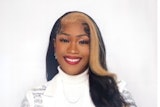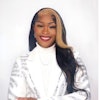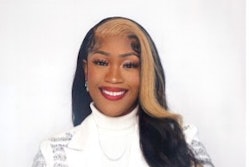Eyewitness To the Changing News Media
Veteran journalist and professor Lee Thornton shares her views on the erosion of public trust in the news media and the role of journalism education in repairing that image
By Ronald Roach
More than ever, the American news media are under public scrutiny for the way individual reporters conduct themselves, for how news coverage on major events is carried out and for the balance media organizations purport their news coverage to have. Journalism professors know all too well the devastating impact that cases of individual journalists fabricating lies and resorting to plagiarism in their work can have on the media’s credibility. Nonetheless, it’s not surprising that journalism schools in recent years have renewed their efforts in teaching journalism ethics.
Dr. Lee Thornton, a veteran journalist and a University of Maryland journalism professor, talks to Black Issues about the controversies that have not only shaped overall public perception of the American news media but have made household names out of a few discredited journalists. Her discussion also highlights her award-winning public affairs show, “Front and Center,” which is produced by the University of Maryland. In one of the few television shows that has journalists commenting on the news business, “Front and Center” showcases Thornton leading discussions with the most recognized figures in American journalism about the news media’s performance.
Currently, Thornton holds the Richard Eaton Chair at the University of Maryland’s Philip Merrill College of Journalism. She joined the faculty in 1997. She also has held faculty positions at Howard University, Ohio State University and the University of Illinois. As a journalist, Thornton has many years of experience, including stints as a CBS News White House correspondent, a senior producer at CNN, and a correspondent and producer at National Public Radio.
A native of Leesburg, Va., Thornton has earned degrees from Teachers College in Washington, D.C., Michigan State University and Northwestern University. She began her broadcast career as a reporter-anchor-producer for WLW-TV in Cincinnati. Thornton
resides in Bethesda, Md.
BI: How would you describe the significance of the University of Maryland journalism school’s move to establish an ethics course requirement for undergraduates in spring 2000? Was it a unique step at the time among journalism education programs?
LT: I don’t believe we were the first major journalism program to offer a full-blown ethics course as a requirement for undergrads — but we were certainly among the first. Such a requirement is still fairly rare nationwide. I know that the administration and the faculty of the Philip Merrill College of Journalism (believe) that’s a reflection of how seriously we take ethics at Maryland. I was there and present at the time when the former dean, Reese Cleghorn, and the faculty decided to do this … to deal straight-on with the issue of ethics in journalism. Certainly, I think that ours is a better program because of that step.
BI: Since 2000 how do you think the public perception of journalists has changed, or not changed, especially in light of the Jayson Blair and Jack Kelley controversies?
LT: I think the year 2000 is rather arbitrary (though) it’s connected to the year we established (an ethics course requirement). In fact, the public perception of journalists and the role they do in news gathering and dissemination had been going downhill well before the year 2000. It was before 2000, for example, that those public rankings of various professions came out, and journalists were right down there with car salesmen and lawyers in the public’s mind. There were a number of surveys and studies that showed tremendous erosion of public trust in journalism before the year 2000.
BI: Do you think media coverage of 9/11, the war on terror and the Iraqi war has had significant impact on the public’s perception of American journalists? How so?
LT: Certainly since 9/11, the war on terror and the War in Iraq, there have been changes in public perception. I want to mention two major media studies issued this year. Dr. Susan Moeller of the University of Maryland documented that the news media accepted the “weapons of mass destruction” political formulation without serious question about the various agents within that category. She also found that it is not established fact to associate mass destruction agents with the phenomenon of terrorism — and that’s an accurate reflection of common fears, but there are differences that the news media did not explain to the public. It’s understandable that there are some who disagree with her findings because that’s quite an indictment of the news media. And of course, such findings don’t encourage public trust in the media. And she was widely quoted on that study, and appeared on a number of television and radio programs discussing that study. So it had high play.
One thing the news media, I think, especially television, are going to have to deal with is the hammering away at one story. This goes back a ways from (O.J.) Simpson to (Tonya) Harding to Florida, the vote count, to Iraq — and a lot of stories in between. A few years back, Russell Baker said: “I find … that I am no longer easily persuaded that something terribly important is constantly going on.” And I love that quote. We need to do more of an examination of why we do that because it is one habit of the media that doesn’t encourage public confidence in what reporters and news organizations do.
The other major study I made reference to is called “The State of the News Media 2004.” It is from the Project for Excellence in Journalism, and it’s massive, something like a 350-page study. But the bottom line is that news outlets today are chasing either static audiences, audiences that have gone away or shrinking very rapidly. They say there are three areas of growth, and one is online, (another is) ethnic journalism, and one is alternative media. Well, that says a whole lot.
BI: Both Jayson Blair and Jack Kelley are University of Maryland graduates. What kind of attention and or impact have their troubles brought upon the Maryland journalism programs?
LT: Obviously, the fact that both Jayson Blair and Jack Kelley attended Maryland was an embarrassment. That goes almost without saying. I think Kelley finished his degree; I know Blair did not. But that’s beside the point. People at the college spent a lot of time coping with press inquiries throughout these two episodes. I got a call from a local talk radio station on a Sunday afternoon when the Blair episode broke full force. And I gave them the phone number of the dean; I just turned it over. I thought it was best. I know that he spent easily the next two or three weeks on the phone with news organizations dealing with the many questions as did other administrators and faculty members of the college.
A lot of news organizations went way out of their way, I thought, to point out that Jayson Blair attended Maryland. I don’t think, however, that many news organizations blamed the school for the ethical and moral failings of either one of these two guys. There seems to be some subtle point to be made in simply pointing out that they went to Maryland. I don’t know to this day what school, for example, [discredited former corporate CEO] Dennis Kozlowski went to. It’s not ordinary to report when people are in trouble what school they went to. It really isn’t, but here that was done. So I thought it was odd.
As for the impact on our students, there’s been none. Our applications are higher than ever, far more students than we can accept. Their credentials are higher than ever in the history of the college, and they’re getting jobs. I can certainly attest to that. The point I want to make is the employers aren’t holding them accountable for Jayson and Jack. So, our students have not suffered.
BI: Did you study journalism ethics as a
college or graduate student?
LT: I did not. And I don’t have a degree in journalism, although obviously I have degrees. I had coursework in journalism — but it wasn’t common back then to study journalism ethics per se. I would say though that when I went to CBS News in the mid-1970s that was a course in ethics in itself. It’s impossible for me to describe how careful those producers were with their facts, or how scrupulous they were about telling the best truth we could tell. This was when Walter Cronkite and Eric Sevareid were on the premises. And the place was still visited from time to time by the late, great Fred Friendly whose motto was, “Who’ll know? I’ll know!” I’d say it was a very sound ethics education besides what my mama and daddy taught me about what was right and what was wrong. I would hasten to recognize that was truly another time — without 24-hour news delivery, without the intense competition that exists today. But I also believe none of today’s realities explain or excuse short cuts and outright lying.
BI: Your award-winning show “Front and Center” has closely examined the American news media and ethics. What specifically led you to create and develop the show?
LT: I enjoy doing TV. And there was a chance to do the show totally on my own terms. It’s fun to sit and talk about issues in journalism for a half hour and sometimes even get people to say things. I’ve had a number of memorable interviews with journalists like David Broder, Wolf Blitzer, Haynes Johnson, Helen Thomas, Jack Nelson, Juan Williams, Clarence Page, Sam Donaldson, Bob Novak, Len Downie, Bob Kaiser — and many others. What led me to create the show was that the Merrill college has a TV station, UMTV. The programming appears on Comcast (cable television in Maryland); it reaches 500,000 homes, including Baltimore city. I thought, well that’s an opportunity to do something fun and something creative. The show has been on air now since the spring semester of 2001, and it’s been recognized with three national and international awards, including most recently a Telly for the show I did this spring with Bob Novak. It’s great for me because the academy now recognizes production and creative effort in addition to how it always has recognized publications.
BI: How widely viewed is “Front and
Center”? Is it nationally syndicated?
LT: I mentioned that the program is seen on Comcast. It’s also been seen on Howard University’s PBS affiliated station, Channel 32. They’ve been showing it on Saturday nights for a couple of years now. It’s also on Research TV. That’s a consortium of research universities. The shows are put up on satellite and any research university can pull them down and use them at will. I’ve had telephone calls from Georgia — a former student of mine called me and he had seen my show down there. I’ve had e-mails and calls from Ohio and other places. And it’s really fun to sit there in College Park and do something that’s seen so widely. It’s also seen overseas on WorldNet. Technology has enabled all of that. In the past you could not be seen nationally except if you were on a broadcast network. But technology has changed everything, and so I get the fun of being a teacher who does a show now that’s widely seen.
When I asked Sam Donaldson to do the show last year he said, “Who sees this, Lee?” and I told him. He said, “By golly, that’s good enough for me!” And he came on and did the show.
BI: What are your concerns over the progress, or lack of it, that newsrooms are having in bringing underrepresented minorities into the journalism profession?
LT: I’ve done a number of shows on this subject, and I regularly monitor the Web sites of the minority journalism associations. Of course everyone wants to see news organizations and all the rest of America become as inclusive as possible, as fast as possible. But the fact is, change comes slowly to our institutions. But it’s coming — because it has to. The nation’s demographics demand it, and that’s a demand that’s going to increase as the years go on. Earlier, I referred to the study by the Project for Excellence in Journalism that says there’s growth in ethnic and alternative media. I, for one, think that’s a very good thing. I don’t believe, for example, every good minority journalist has to work for a traditional news organization. I think those who want to do so should be able to, but traditional news organizations clearly are no longer the only game in town.
BI: You earned your Ph.D. in radio, television and film studies before you began working as a television news reporter. What motivated you to pursue the Ph.D.?
LT: That’s an easy one. I earned my Ph.D. because I just loved school. I just loved being around a campus, and I stayed as long as I could. I got one degree after another because I never wanted to go out and a get a job. Finally, I had to. And, of course, I’m glad I did. I always felt that at some point I’d again be back on a campus.
BI: What kind of advice do you have for young people who are interested in both academe and journalism?
LT: Well, I tell anybody who asks me about anything they want to do to just go do it. You’ve got to give it a go. What’s interesting to me is that I get so many questions from people with bachelor’s degrees in journalism asking about getting a master’s in journalism. I happen to think that there’s not a lot of use in getting two degrees in this field. I tell people the year and a half, two years it takes to get a master’s is better spent getting the experience. Of course, if you want to teach then obviously you should pursue getting the advanced degrees.
BI: How would you characterize the rewards of teaching?
LT: If I have a legacy, in fact, it is my students. They are absolutely everywhere — networks, local stations. They are anchors, reporters, producers and in management. They are amazing, and I am immensely proud to have had even a little bit to do with them and the progress they’ve made. They’ve been an inspiration to me. And I wouldn’t trade the experience for anything. Even better, so many of them stay in touch. Hardly a week goes by when I don’t get at least a couple or three e-mails and phone calls from former students. I’ve even seen them win Emmys now. Teaching, as my current kids might say, has been the “bomb.”
© Copyright 2005 by DiverseEducation.com















